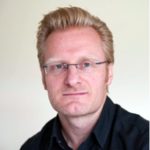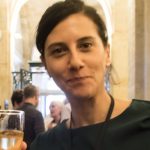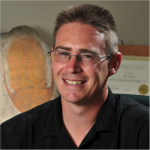
- This event has passed.
The Microbiome and Biological Individuality
3 July 2024 | 9 h 30 min - 18 h 00 min

The international and interdisciplinary conference ‘The Microbiome and Biological Individuality’ will be held on July 3rd, 2024 at the University of Bordeaux, France, in the historic city center of the vibrant city of Bordeaux (Pey Berland Campus).
It will gather a fantastic line-up of world-leading experts in microbiome research, for an in-depth discussion on the conceptual foundations of this field and its impact on how we conceive of biological individuality.
Attendance is free to all, but registration is mandatory.
If you would like to attend online, please contact Thomas Pradeu.
This conference is organized by Thomas Pradeu, with the institutional support of the ImmunoConcEpT lab and the PhilInBioMed network, and the financial support of the Gordon and Betty Moore Foundation.
Speakers
 |
Yasmine Belkaid (President of Pasteur Institute, Paris, France; previously Chief of the Metaorganism Immunity Section at the NIH)
Plenary speaker |
 |
Benoît Chassaing (Head – Microbiome/Host Interactions, Institut Pasteur, INSERM, Université Paris Cité, Paris, France) |
 |
Gérard Eberl (Head – Microenvironment and Immunity, Institut Pasteur, INSERM, Paris, France) |
 |
Hannah Kaminski (MD PhD, Associate Professor of Immunology and Nephrology, ImmunoConcEpT, Bordeaux, France) |
 |
Rob Knight (Director of the Center for Microbiome Innovation and Professor of Pediatrics, Bioengineering, and Computer Science & Engineering at UC San Diego, USA)
Plenary speaker |
 |
Pauline Rivière (MD PhD, Gastroenterology) & Raphaël Enaud (MD PhD, Public Health & Nutrition) |
 |
Orsolya Vincze (Postdoctoral researcher, ImmunoConcEpT, Bordeaux, France & LIENSs, La Rochelle, France) |
Chairs
Margaret McFall-Ngai, Caltech, CA, USA
Thomas Pradeu, ImmunoConcEpT, CNRS & Univ. Bordeaux, France
Schedule
| Morning chair:
9:30-10:30 |
Thomas Pradeu Rob Knight Microbiome individuality and microbiome twins |
| 10:30-11:15 | Orsolya Vincze
Evolutionary link between the gut microbiome and cancer risk across mammals |
| 11:15-11:45 | Coffee break |
| 11:45-12:30 | Pauline Rivière & Raphaël Enaud
Microbiome and digestive inflammation: beyond the chicken and the egg dilemma |
| 12:15-14:15 | Lunch |
| Afternoon chair:
14:15-15:00 |
Margaret McFall-Ngai Benoît Chassaing Diet-Microbiota Interaction – A personalized point of view |
| 15:00-16:00 | Yasmine Belkaid
Control of immunity by the metaorganism |
| 16:00-16:30 | Coffee break |
| 16:30-17:15 | Hannah Kaminski
Is damage the feature that microbiota and host develop to promote a stable association leading to symbiosis? |
| 17:15-18:00 | Gérard Eberl
Microbes, immune system and homeostasis |
Titles and Abstracts
Yasmine Belkaid, Control of immunity by the metaorganism
Benoît Chassaing, Diet-Microbiota Interaction – A personalized point of view
When stably maintained, the intestinal microbiota provides important benefits to its host, while disturbance of the microbiota-host relationship can drive chronic inflammation – a cardinal feature of an array of diseases such as inflammatory bowel disease and metabolic deregulations. While many factors regulate microbiota composition and functions, studies in the last two decades have revealed a central role played by diet in modulating this complex community and its subsequent impact on host health. We have for exemple investigated substances that are broadly incorporated into ultra-processed foods, namely dietary emulsifiers, importantly revealing that these products have marked direct modulatory potential on the intestinal microbiota in a way that broadly impacts host physiology. While these food additives are now suspected to be central players in the repeatedly observed association between consumption of ultra-processed food and chronic inflammatory diseases such as inflammatory bowel disease and cardiovascular diseases, the exact causal relationship, as well as mechanisms involved, are currently being carefully investigated. Importantly, the extent of emulsifiers/microbiota interaction are not uniform but rather subject to high levels of inter-individual variations, and preliminary data accumulated to date suggest that the intestinal microbiota is a central nexus in driving such inter-individual variations in the extent to which food additives impact human health. Similar observations have been recently made regarding fibre/microbiota interactions, and the importance of such personalized impact on intestinal and metabolic health will also be presented.
Gérard Eberl, Microbes, immune system and homeostasis
The microbiota and its host establish a symbiotic relationship that remains unclearly understood in the context of immunology. Can microbes colonize the host because they are ignored, tolerated, not pathogenic, inducing physiologic inflammation or supporting homeostasis? My lab is studying the microbiota-immune system relationship as one of constant interactions that allow for diverse responses by the host, but that have to be controlled by the immune system in order to maintain homeostasis of the host. I will present a formalization and potential consequences of this simple concept.
Hannah Kaminski, Is damage the feature that microbiota and host develop to promote a stable association leading to symbiosis?
The immune response to microbiota has initially been excluded from the general theory of immunity or classified as avoidance, ignorance, or tolerance. In this project, we aim to evaluate, from both conceptual and experimental perspectives, how the microbiota and the immune system interact and contribute to a stable symbiotic relationship. Our claim is that microbiota closely resemble other bacteria considered as pathogens, leading to tissue damage, but with a lower degree of intensity and that this type of response contributes to symbiosis. We explore the work of Polly Matzinger, Ruslan Medzhitov, Yasmine Belkaid, and other authors to understand how microbiota have been described as involved in tissue damage. We will also present an experimental mouse model of the establishment of the microbiota-immune system relationship during the weaning period and adulthood, representing the temporal window in which the relationship between the microbiota and the immune system becomes stable.
Rob Knight, Microbiome individuality and microbiome twins
There is an increasing appreciation that microbiomes contribute substantially to animal model and human phenotypes ranging from weight to mood. This raises the question of whether microbiomes should be treated as classes (i.e. do people who have the same microbiome in some sense behave the same), or as individuals (spatiotemporally localized cohesive and continuous entities, following Hull), or in some hybrid fashion. In this talk I discuss recent results concerning variation in the human microbiome, our current and future ability to change our microbiomes to resemble those of another person, and the concept of digital twins that can capture essential features of an individual’s microbiome for counterfactual scenarios, such as response to a range of possible future treatments.
Pauline Rivière & Raphaël Enaud, Microbiome and digestive inflammation: beyond the chicken and the egg dilemma
The study of the complex interactions between the gut microbiota and human health has gained increasing importance in recent decades, particularly in the field of inflammatory and immune-related diseases. One of the most debated aspects of this topic is the contribution of dysbiosis to the development of an inflammatory state.
In this presentation, we will address this question through the lens of two very different diseases: chronic inflammatory bowel disease and cystic fibrosis. By comparing the available data on these two diseases, we will discuss the intriguing similarities that may shed light on this crucial question.
Orsolya Vincze, Evolutionary link between the gut microbiome and cancer risk across mammals
Cancer is a ubiquitous problem of mammals but its prevalence varies widely from species to species, as well as along the phylogeny. Unravelling the source of this cross-species variability promises novel perspectives at the forefront of cancer research, yet our knowledge of the predictors of interspecies cancer resistance remains limited. In recent decades, the gut microbial community has emerged as an important component influencing cancer risk and resistance in both humans and laboratory model organisms. Microbes can both decrease and increase the risk of cancer either directly by producing compounds that promote or inhibit tumour development or indirectly by modulating immune function. During my talk, I’ll showcase the cross-species variability in cancer risk, and present preliminary findings regarding the role of species-specific intestinal microbial profiles in shaping the cross-species prevalence of cancer in mammals. Our analyses explore both the role of overall microbial diversity, as well as of the relative abundance of specific bacterial lineages in shaping cancer risk across taxa. I will discuss the results in light of similar explorations in humans and laboratory model organisms while considering both the direct and indirect effects of microbes on oncogenesis and defence.
(Please note that, due to unforeseen circumstances, Julien Royet had to cancel his participation to this conference)
Venue:
Pey Berland, Bordeaux
Organization: Thomas Pradeu
Funding: Gordon and Betty Moore Foundation


